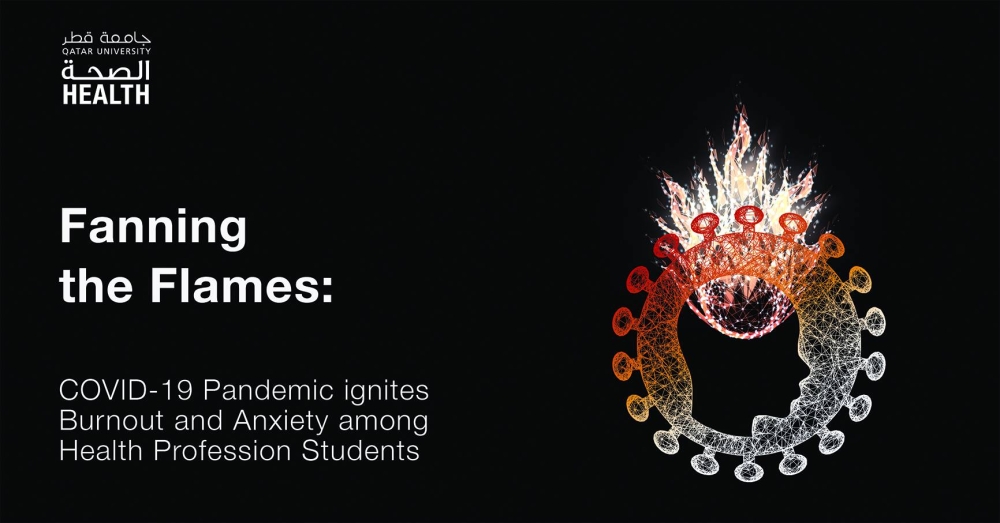A study by Qatar University (QU) has found that the coronavirus (Covid-19) pandemic caused burnout and anxiety among healthcare students.
The study by the College of Pharmacy at QU Health, in collaboration with researchers from the College of Health Sciences and the College of Medicine, sheds light on the impact of Covid-19 on the mental health and empathy of health professions students.
This research delivers critical insights into the challenges faced by students of healthcare professions during these unprecedented times, emphasising the urgent need for support and intervention.
Led by Dr Alla El-Awaisi, director of Clinical Operations and Engagement at QU Health, the study delves into health profession students' experiences, unravelling the hurdles they encountered during the ongoing pandemic.
The study revealed a worrying surge in anxiety levels among these students, driven by the uncertain pandemic landscape, fear of contracting the virus, and concerns about their education and future careers.
However, the study also highlighted the incredible power of empathy among health profession students.
Despite their own challenges, these students demonstrated resilience and an unwavering capacity for empathy which is vital in providing compassionate care even in the face of adversity.
“Our study reveals the deep impact of the Covid-19 pandemic on the mental well-being of health profession students, emphasising the need to prepare them for the challenges of healthcare delivery in a post-pandemic world,” Dr El-Awaisi commented. “As the future of the healthcare profession, it is crucial to develop tailored awareness and management programmes to address their unique needs, reducing the occurrence and consequences of burnout.”
The study raised a red flag on the need to address burnout awareness and implement educational interventions.
By revealing the prevalence and impact of burnout among health profession students, it emphasised the necessity of integrating burnout prevention strategies into educational curricula and fostering a culture that prioritises student well-being in these demanding fields.
In order to gather data, the researchers devised a comprehensive survey that covered crucial aspects such as burnout, anxiety, empathy, and the impact of the Covid-19 pandemic.
This survey was distributed to all health profession students at the QU, including undergraduate and postgraduate students who were studying during the initial year of the pandemic.
By utilising reliable tools, the researchers ensured that the survey would yield accurate and meaningful results.
Out of the 1,268 students who were eligible to participate, 272 students completed the online survey.
The average age of the participants was 21.4 years, and most of them were females (92.6%).
The majority of respondents were studying pharmacy (36.4%) or medicine (24.6%).
Most students showed significant concern regarding Covid-19.
They were very or extremely concerned about the pandemic's duration (69.9%), the number of new cases, their personal safety and security, the risk of getting Covid-19 themselves, and the risk of their loved ones contracting Covid-19.

